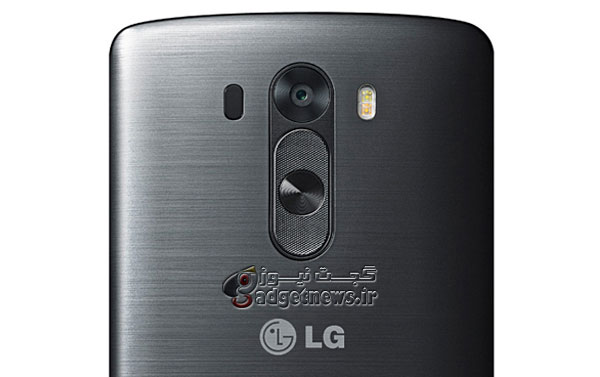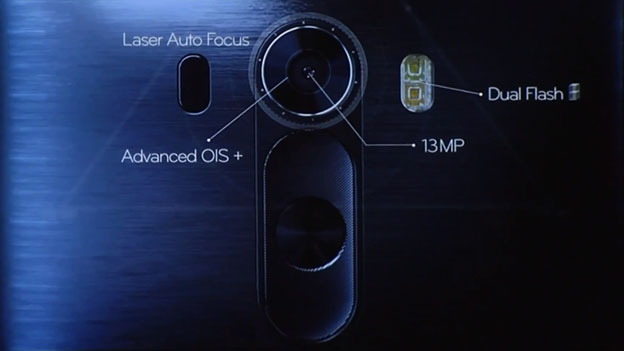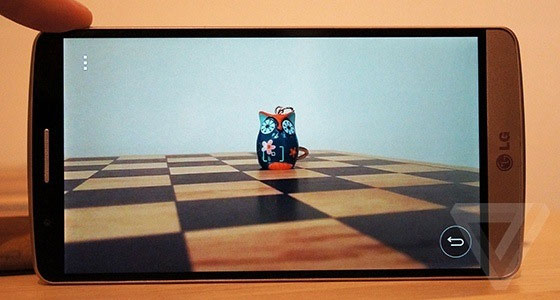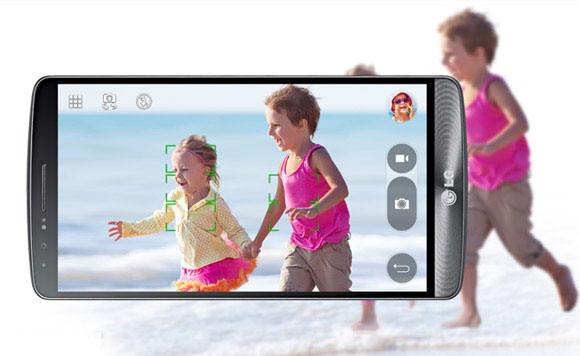
الجی شب گذشته در مراسم رونمایی از جدیدترین پرچمدار اندرویدی خود G3 ادعا کرد که قابلیت فوکوس لیزری دوربین این گوشی آن را به سریعترین کمرافون دنیا تبدیل کرده است. اما این ادعا تا چه حد صحت دارد و اصولاً این اشعه لیزری چگونه کار میکند؟
دقیقاً همان لحظهای که وارد اپلیکیشن دوربین G3 شوید یک اشعه لیزری نامرئی که بهتر است بگوییم اشعه فروسرخ به شکل یک مخروط از دریچه کوچک کنار لنز دوربین ساطع میشود. پس از آن همان دریچه میتواند زمان لازم برای تابش و بازتاب لیزر از اشیای اطراف را اندازهگیری کرده و در نتیجه با توجه به سرعت نور فاصله اجسام را از گوشی تشخیص دهد. این عملکرد دقیقاً شبیه به کاری است که خفاشها با امواج صوتی انجام میدهند با این تفاوت که اینبار از نور نامرئی استفاده میشود.

البته این فناوری چیز جدیدی نیست و حتی خود الجی از آن در روباتهای هوشمند نظافتچی خود با نام Hom-Bot استفاده کرده بود اما تاکنون از این فناوری در دوربین گوشیهای هوشمند بهره برده نشده بود. به این ترتیب الجی با این فناوری ادعای سریعترین دوربین در گوشیهای هوشمند کنونی را دارد. این ادعا البته صحیح است، چرا که سریعترین گوشیهای هوشمند در عکسبرداری یعنی گلکسی اس 5 و اچتیسی وان جدید قادرند در 0.3 ثانیه تصویر را فوکوس و ثبت کنند و این زمان در جی3 تنها 276 میلیثانیه یعنی سریعتر از پلک زدن انسان است.

الجی با ترکیب اطلاعات دریافتی از لیزر و همچنین الگوریتمهای رایجتر فوکوس خودکار مانند تشخیص کنتراست و چهره سعی میکند در هر شرایطی بهترین و سریعترین عملیات را انجام دهد اما شاید بگویید کاربر هیچگاه تفاوت 0.3 ثانیه و 276 میلیثانیه را احساس نخواهد کرد؛ در این صورت باید توجه کنید که تفاوت واقعی در نور کم و سوژههای نزدیک مشخص میشود. وان جدید با فناوری دوربین دوگانه و گلکسی اس 5 با Phase Detection سرعت 0.3 ثانیه را تنها در نور کافی دارند در صورتی که به لطف فناوری لیزری جی3 دوربین این گوشی حتی در تاریکی هم با سرعت فوقالعاده فوکوس خواهد کرد. همچنین این ویژگی جی3 را قادر خواهد کرد سوژههای متحرک را نیز به صورت پیوسته در فوکوس حفظ کند.

از آنجایی که الجی ادعا دارد این فناوری سریعترین و بهترین سیستم فوکوس خودکار بازار است در اپلیکیشن دوربین هم در ابتدا به جز دو دکمه منو و خروج چیزی مشاهده نمیکنید و یک لمس روی صفحه باعث فوکوس خودکار و بلافاصله ثبت عکس خواهد شد.
منبع : theverge
How LG's robot lasers produced the world's 'fastest' cameraphone
The camera in LG's new G3 flagship smartphone is pretty special. Not for its 13-megapixel sensor or optical image stabilization — both good things to have — but for being the first among phones to feature a laser autofocus system. Here's how it works.
The moment you enter the camera app, the G3 starts emitting a cone-shaped laser beam from a window just to the side of the camera. The phone then measures how long it takes for the light to bounce back to it and thus gets a reading of how far away the subject of the photo is. It's the same thing that bats do with sonar, only it's done with lasers projected at an infrared wavelength (and therefore invisible to the human eye).
Curiously enough, LG didn't develop this technology for its current purpose. The lasers in question were first researched for use in the company's line of Hom-Bot robotic vacuum cleaners, however they were never implemented there. Seeing a synergistic opportunity, LG's mobile team picked them up and made them an integral part of what the company claims is the fastest camera in a smartphone today.
LG combines the constant flow of range information from the lasers with a conventional contrast-detection autofocus and extra algorithms like face detection. It's a hybrid system that will automatically give precedence to the more useful data: LG says the laser helps more in low-light situations and with nearby subjects, but if it can't give a reliable reading it might be discarded in favor of the standard focus method. Still, the company claims an autofocus time of just 276 milliseconds, faster than the blink of an eye.
The camera UI could be described as utilitarian if there actually was any. LG's hidden away all controls and left the user with just two buttons: one for the menu and the other to exit the app. By default, images are captured and focused when you tap anywhere on the screen. This software setup is an overt call to challenge the speed and precision of what LG believes is the best autofocus system on the market.
In practice, the G3's camera isn't tangibly faster than the speedy shooters on the iPhone 5S or HTC One. Its headline number of less than a third of a second to capture an image is the best case scenario, and pictures often take longer to complete. Even when comparing cameras at their fastest, the G3's advantage is of mere milliseconds and therefore too moderate to be noticeable. Still, it's a cool innovation, lasers are involved, and it makes LG's best that little better.
 گجت نیوز آخرین اخبار تکنولوژی، علم و خودرو
گجت نیوز آخرین اخبار تکنولوژی، علم و خودرو 




